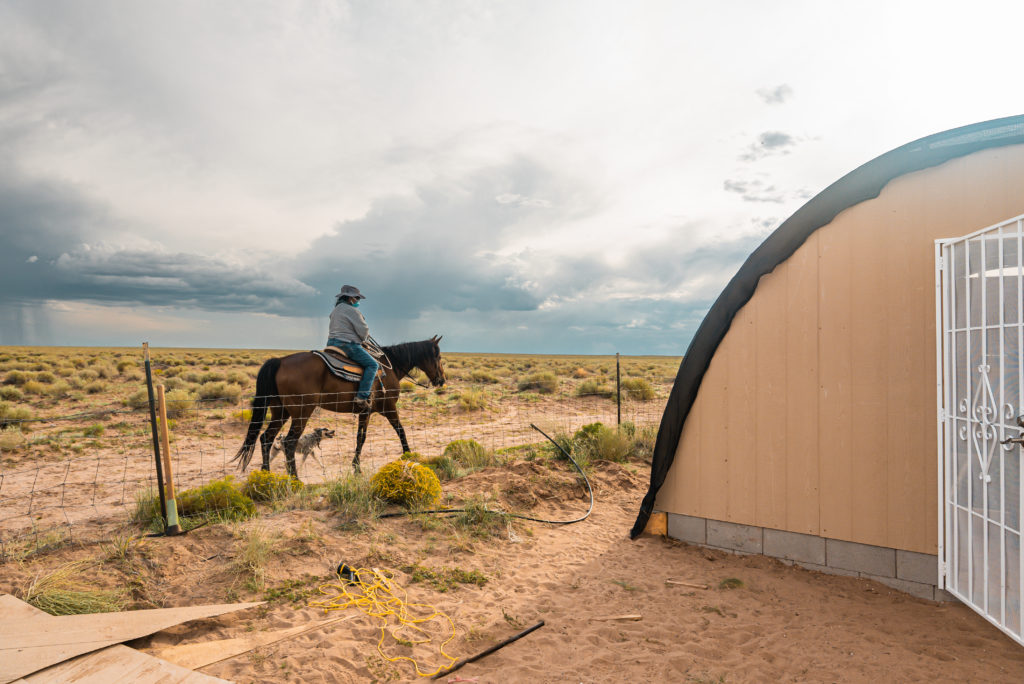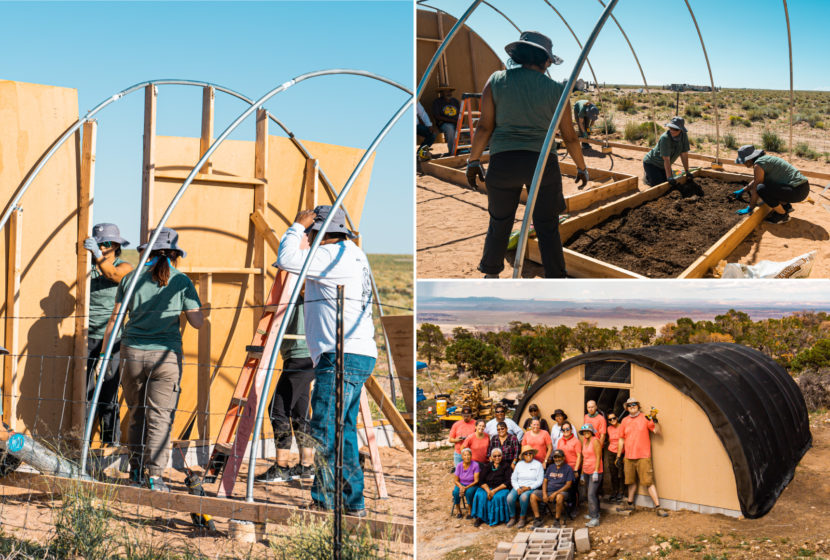There is an old Navajo proverb that says, “Be still and the earth will speak to you.” This adage was ever present as volunteers with the ASEA® Advancing Life™ Foundation worked together to build greenhouses in two separate areas of the Navajo Nation reservation in Arizona. In consulting with the indigenous people of the area, the volunteers left feeling as if they had gained as much as they gave.
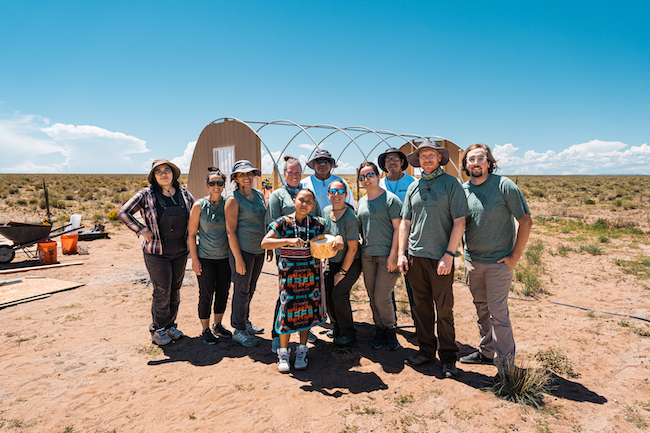
Constructing the hoop houses
It is Navajo tradition to always put the door to a house on the East side of a building and work around the perimeter clockwise in order to follow the sun. First, volunteers used shovels to till the earth where the garden planters would be located for planting. After that hard work, they began building the struts, the cement foundation for each pole, and the outer structure of the hoop houses—followed by the roofing and the door. Each hoop house costs between $5,000 and $7,000 in materials to construct. Thanks to generous donations, two families received a hoop house to grow food for their communities with two more hoop houses funded, bringing the total to four.
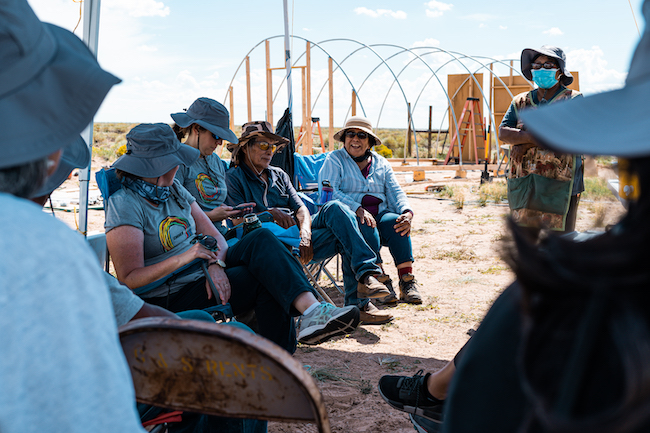
Food made by new friends
Volunteers took a break midday to enjoy Navajo cuisine prepared by Marie Bighorse. They have made their living as ranchers, but their ancestors were farmers and passed down the ways of Navajo planting. Though there were only eight volunteers, the group consumed at least 50 pieces of fry bread prepared that week.
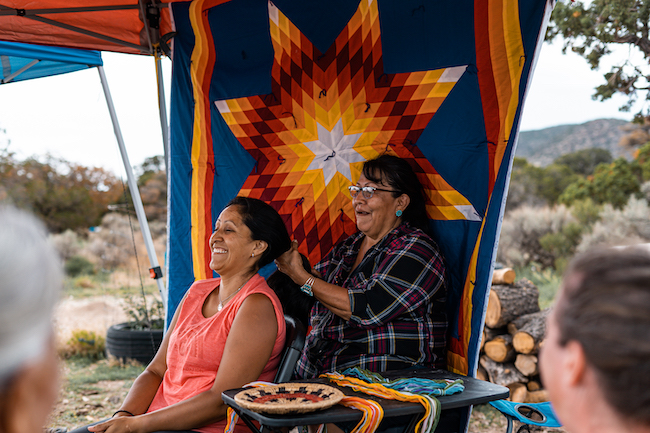
Valerie Biakeddy taught the volunteers about her family’s beliefs and culture. Valerie’s mother Ethlyn showed volunteers the herbs that she has collected from the desert to use for cooking and medicine. Volunteers learned that reservation life can be difficult, due to lack of access to running water, electricity, and quality food. Homes are fairly isolated on dirt roads with barren land around them. All grocery stores and markets are hours away if the family needs supplies, which is why the new hoop house will make a big difference in their ability to grow and store food. Despite so much hardship and oppression, these families remain positive for the future.
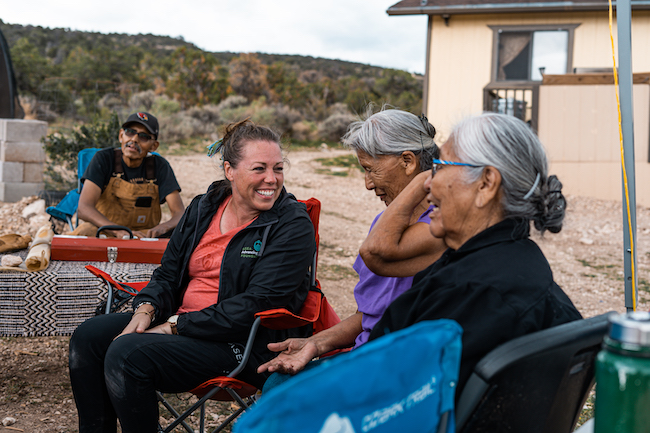
A sacred culture next to the canyon
On the third day of work, volunteers met the Bighorse family, who live right at the mouth of the Grand Canyon. This time the volunteers were able to work faster, having gained a lot of hands-on experience and knowledge from the day before. Not only did they learn about how to properly build, store, and plant the gardens, the few Advancing Life volunteers learned that the Navajo prefer to be called the Diné people, meaning ‘Children of the Holy People.’
“As I spent time with these beautiful people over the week, I witnessed the importance of heritage and the respect one should have for ancestors,” says KimMarie Larsen, Foundation Chair. “I saw firsthand the value of family traditions and stories that need to be passed down. I was reminded that humans are strong and can persevere through difficult challenges and still find love and beauty in life.”
A family friend Big John, made sure to sit with the volunteers every day to teach them, joke around, and provide his guiding leadership, despite fighting illness. Marilyn, the Director for CHOICE Humanitarian’s Navajo Nations group, was a soft-spoken and kind woman who embodied resiliency and gave the group the historical background of the Diné matriarchy. Maria Bighorse shared stories about the family’s trials, the loss of two children, and the hopeful reverence her people have for their land and their history.
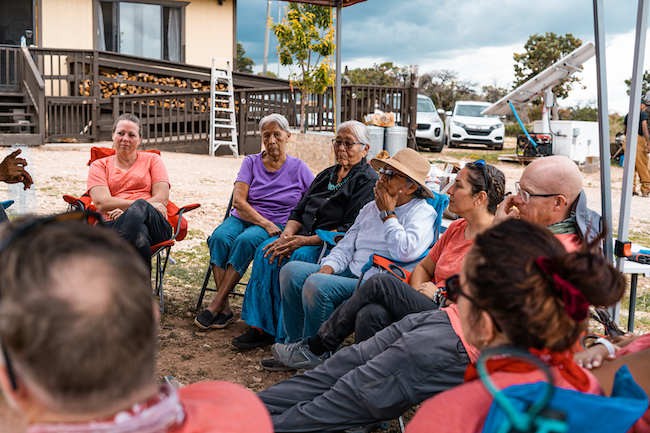
Human connections
“I’m grateful for the opportunity to create a human connection with the Diné families and be able to serve them,” says KimMarie. “When we serve another person we come to love them and connect with them in a way that cannot be achieved otherwise. Understanding and trust allow hearts to soften and open. I believe that the impact we left behind isn’t just about providing hoop houses, it is about helping them feel loved and seen in a time of need. This type of unconditional love gives people hope, helps them feel empowered to progress, and in turn, they transform us by letting us into their lives.”
If you’d like to donate to worthy causes like the Navajo Nation hoop houses, consider becoming a monthly donor. ASEA® matches each donation which doubles your impact in helping others.
